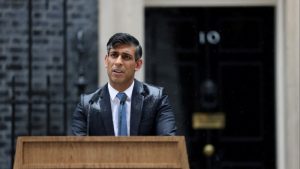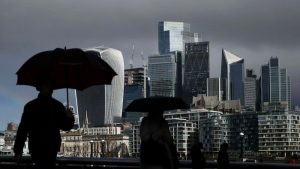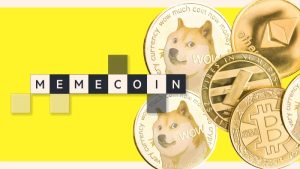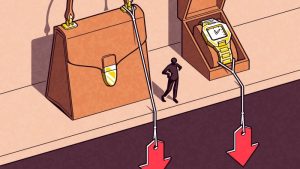Biden administration split over Nippon Steel’s US Steel takeover bid
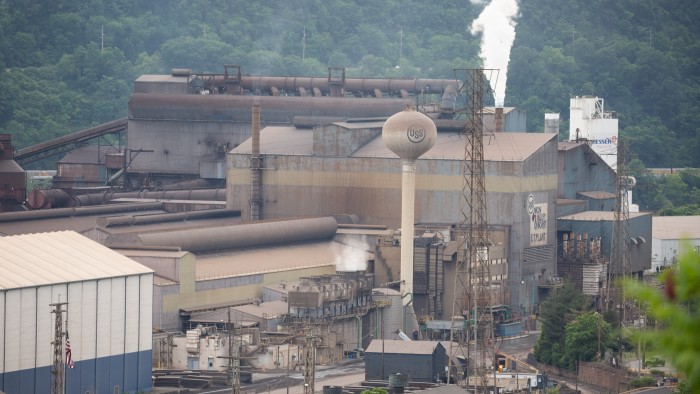
This article is an on-site version of our FirstFT newsletter. Subscribers can sign up to our Asia, Europe/Africa or Americas edition to get the newsletter delivered every weekday morning. Explore all of our newsletters here
Good morning. In today’s newsletter:
-
Washington divided over Nippon’s bid for US Steel
-
The latest US tariffs on Chinese imports
-
Who should foot the bill for cyber scams?
We start with the latest developments in Nippon Steel’s proposed $15bn acquisition of US Steel, which has become ensnared in US politics after it was announced late last year.
The Pentagon, US Treasury and state department have all concluded that the Japanese group’s takeover bid poses no national security risks, even though President Joe Biden is expected to block the deal.
Biden has insisted the deal presents economic and national security risks, but critics say he made the determination for political reasons ahead of last month’s presidential election. The US steelmaker is based in Pennsylvania, which was a critical swing state in last month’s presidential election.
“There is no credible analysis in the inter-agency that supports Biden,” said one former US official familiar with the internal debate.
President-elect Donald Trump also opposes the deal, and has vowed to block it “immediately” once he returns to the White House in January.
One person familiar with the discussions said the Pentagon, Treasury and state department had not issued final opinions, and that the issue would be debated today and in the run-up to the December 23 deadline. Here’s what we know about Nippon’s last-gasp effort to rescue the deal.
Here’s what else we’re keeping tabs on today:
-
Economic data: Indian publishes November CPI figures and Australia reports November employment data.
-
Malaysia: Prime Minister Anwar Ibrahim launches a national office for artificial intelligence.
Five more top stories
1. Exclusive: The Biden administration is poised to unveil steep new tariffs on imports of critical materials from China in its final effort to protect US manufacturing from the Asian superpower’s dominant cleantech industry. Here’s what to expect from the tariffs which come into effect on January 1.
2. North Korea slammed South Korean President Yoon Suk Yeol for plunging his country into “pandemonium” after last week’s failed martial law gambit. In Pyongyang’s first official comments on the political crisis in the neighbouring democracy, the Kim Jong Un regime’s propagandists appeared to be deriding the situation for domestic purposes.
3. Gautam Adani’s conglomerate has said it will no longer tap $500mn in US development financing for a Sri Lankan port project after the group’s billionaire chair was accused of orchestrating a multimillion-dollar bribery scheme. The withdrawal shows how the Indian conglomerate may be hit by funding constraints in the wake of criminal and civil charges.
4. Iran’s supreme leader was defiant in his first public comments since the sudden overthrow of Syrian ally Bashar al-Assad. Ayatollah Ali Khamenei insisted that Tehran would continue to confront the US and Israel in the region even after evacuating thousands of its citizens during the rebel takeover of Damascus. Analysts see Assad’s fall as a severe blow to Iran’s regional influence.
-
Disentangling Syria’s corrupt state: Transitional authorities are grappling with a bureaucracy filled with phantom jobs, pervasive graft and a culture of obedience.
-
‘Race against time’: The Biden administration is struggling to respond to the turmoil in Syria before the presidential handover.
5. US inflation ticked up to 2.7 per cent last month. The figure matches Wall Street’s forecasts and clears the way for an expected Federal Reserve rate cut next week.
The Big Read

Advancements in AI and the speed of real-time payments have made it easier than ever for scammers to manipulate someone into willingly handing over money, and to make off with it just as quickly. As the problem grows, so has debate between government, banks and technology companies over who should foot the bill.
We’re also reading . . .
-
Mitch McConnell: “We’re in a very, very dangerous world right now,” the influential Republican Senator told the FT as he enters the last two years of his term.
-
Qatar Investment Authority: The new chief of the $500bn sovereign wealth fund said it plans to deploy funds more “aggressively” ahead of a petrodollar windfall.
-
BlackRock: The world’s largest asset manager has bought a bonanza of billionaires, writes Brooke Masters. Can it keep them in line?
Chart of the day
Wall Street banks are betting that the blockbuster rally in US stocks will cool next year as investors turn cautious on the AI boom. One analyst said big US tech companies are “entering a new phase”, with technology giants yet to show they could monetise their AI investments.

Take a break from the news
An archaeological discovery from a well-preserved tomb in Syria, carbon-dated to 2,400 BCE, could change the origin story of our alphabet, writes Anjana Ahuja.

Thank you for reading and remember you can add FirstFT to myFT. You can also elect to receive a FirstFT push notification every morning on the app. Send your recommendations and feedback to [email protected]
Recommended newsletters for you
One Must-Read — Remarkable journalism you won’t want to miss. Sign up here
Newswrap — Our business and economics round-up. Sign up here
#Biden #administration #split #Nippon #Steels #Steel #takeover #bid
